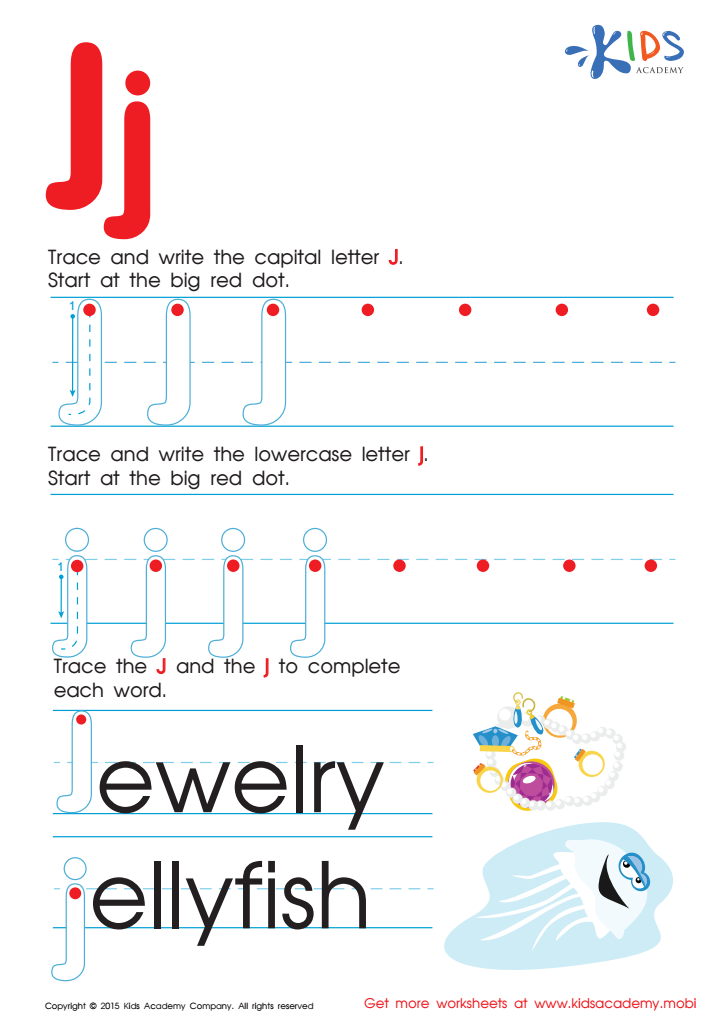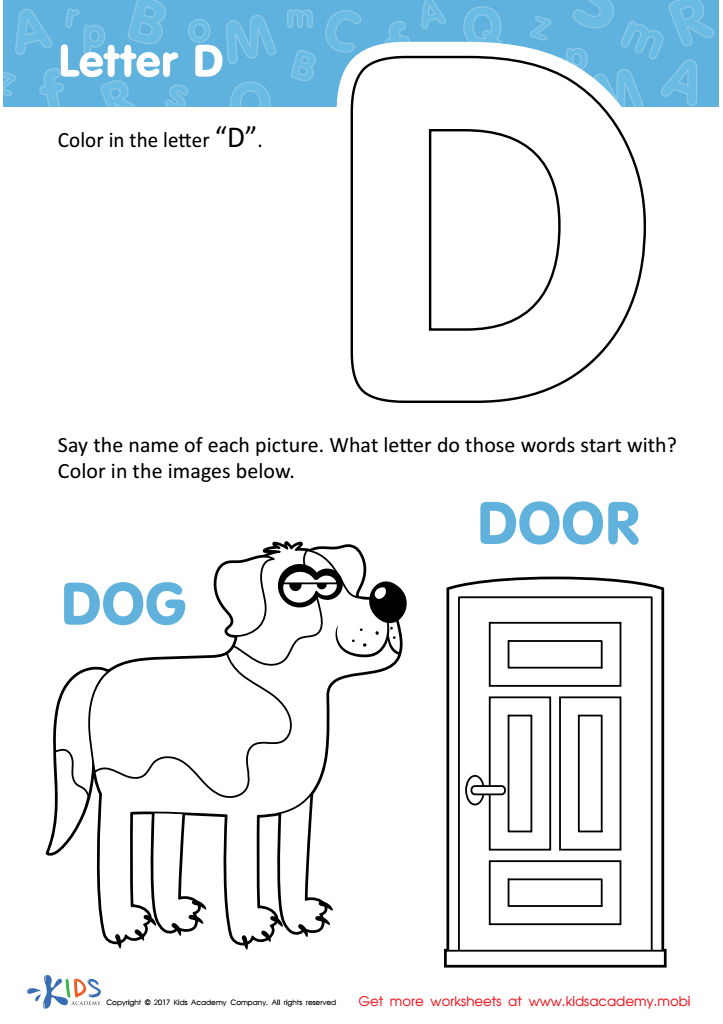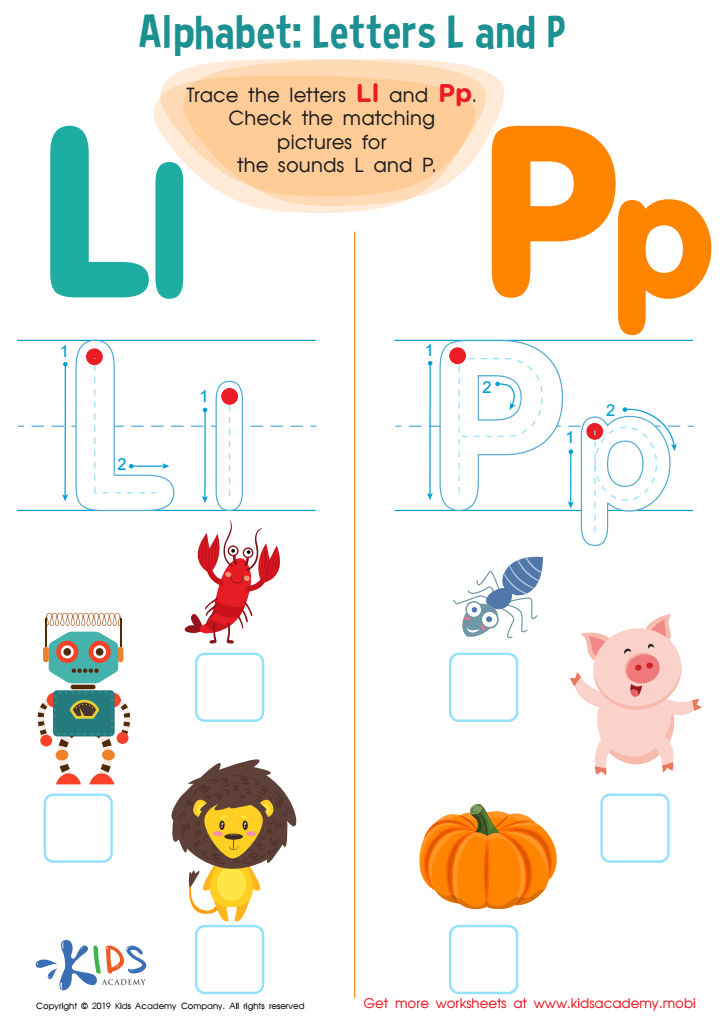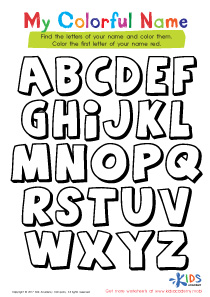Fine motor skills development Grade 3 Letter Recognition Worksheets
3 filtered results
-
From - To
Enhance your third grader's fine motor skills with our engaging Letter Recognition Worksheets. Designed specifically for Grade 3 learners, these worksheets combine letter recognition practice with activities that promote dexterity and hand-eye coordination. Students will enjoy tracing letters, completing fun sequences, and engaging in interactive tasks that make learning enjoyable. These worksheets are an essential tool for helping young learners strengthen their writing abilities while reinforcing their understanding of the alphabet. Perfect for classroom use or at-home practice, our resource supports comprehensive skill development in a fun, creative way, ensuring that your child builds a solid foundation for future learning!


Letter J Tracing Page


Letter D Coloring Sheet


Letter L and P Tracing Worksheet
Fine motor skills are essential for children's overall development, particularly in Grade 3 when they are mastering letter recognition and literacy skills. These skills involve the coordination of small muscles in the hands and fingers, allowing children to manipulate objects, write, and engage with their environment effectively.
When children develop fine motor skills, they gain confidence and independence in their learning. Proficient letter recognition relies on the ability to write letters, spatially organize them, and recognize their shapes. As children learn to form letters correctly and recognize them in different contexts, they build a strong foundation for reading and writing.
Moreover, fine motor skills intertwined with letter recognition enhance cognitive processes such as memory retention and visual perception. Engaging in activities that promote these skills, like cutting, coloring, and crafts, can make learning enjoyable and impactful.
Teachers and parents play a crucial role in supporting this development by creating a variety of hands-on learning experiences that encourage practice. With strong fine motor skills, children will excel in their literacy journey, leading to better academic outcomes and fostering a lifelong love for learning. Therefore, prioritizing the development of fine motor skills is integral for robust educational growth in young learners.
 Assign to My Students
Assign to My Students
















